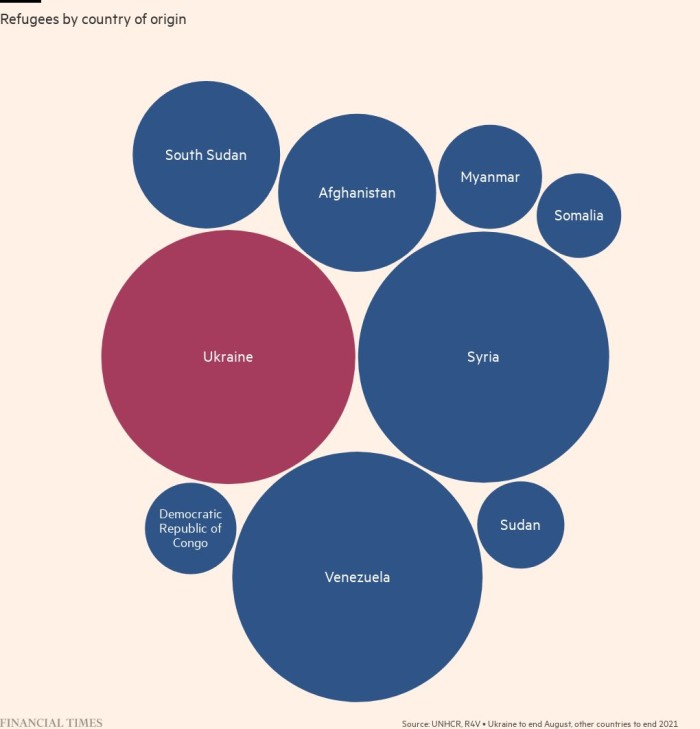It is Europe’s greatest refugee crisis since the second world war. The numbers who have left Ukraine have now outstripped those who fled Syria. But it is not just the scale of the exodus prompted by the Russian invasion that makes it stand out.
European countries have given Ukrainian refugees an immediate right to work. This was a good call. Immigrants can make a contribution to host economies. Assimilation will be easier for those who stay.
Accommodating the sudden influx has imposed large immediate costs. In March, Poland estimated it would have to spend at least €11bn on housing, social services and other expenses.

Giovanni Peri, an economist at University of California, Davis, estimates each refugee may cost $8,000-$10,000 in the first year in housing and other support. But given tight European labour markets, he expects Ukrainian refugees who stay would generate enough income in the following years to outweigh this.
Difficulties abound. Ukrainian refugees responsible for infants cannot easily work. Qualifications may not be recognised locally.
Only one in six refugees who arrived in Poland want to stay permanently, according to a central bank report. The main reason was the challenge of providing for themselves. Ukrainians in Russia, some of whom appear to have been forcibly relocated, may not have the option of leaving.

Yet Ukrainian refugees are expected to increase the EU’s workforce by 0.5 per cent, twice as much as the Syrian refugees who arrived in 2014‑17, according to the OECD. Of the earlier group, only 17 per cent of working-age refugees were in employment after two years in the country and less than 50 per cent after five years, according to the European Central Bank.
Ukraine’s geographical and cultural proximity should help refugees assimilate, as should their relatively high levels of education. The average refugee to Europe around the middle of the decade was a young man with modest qualifications, according to the OECD. In the case of the Ukrainian refugees, it is more likely to be a tertiary educated woman.
The economic outlook is darkening. But the freedom to work will alleviate some hardship and reduce Ukrainian dependence on host nations. In the UK, the economic example of earlier generations of eastern European refugees has been a shining one.
If you are a subscriber and would like to receive alerts when Lex articles are published, just click the button “Add to myFT”, which appears at the top of this page above the headline.
For all the latest Business News Click Here
For the latest news and updates, follow us on Google News.
